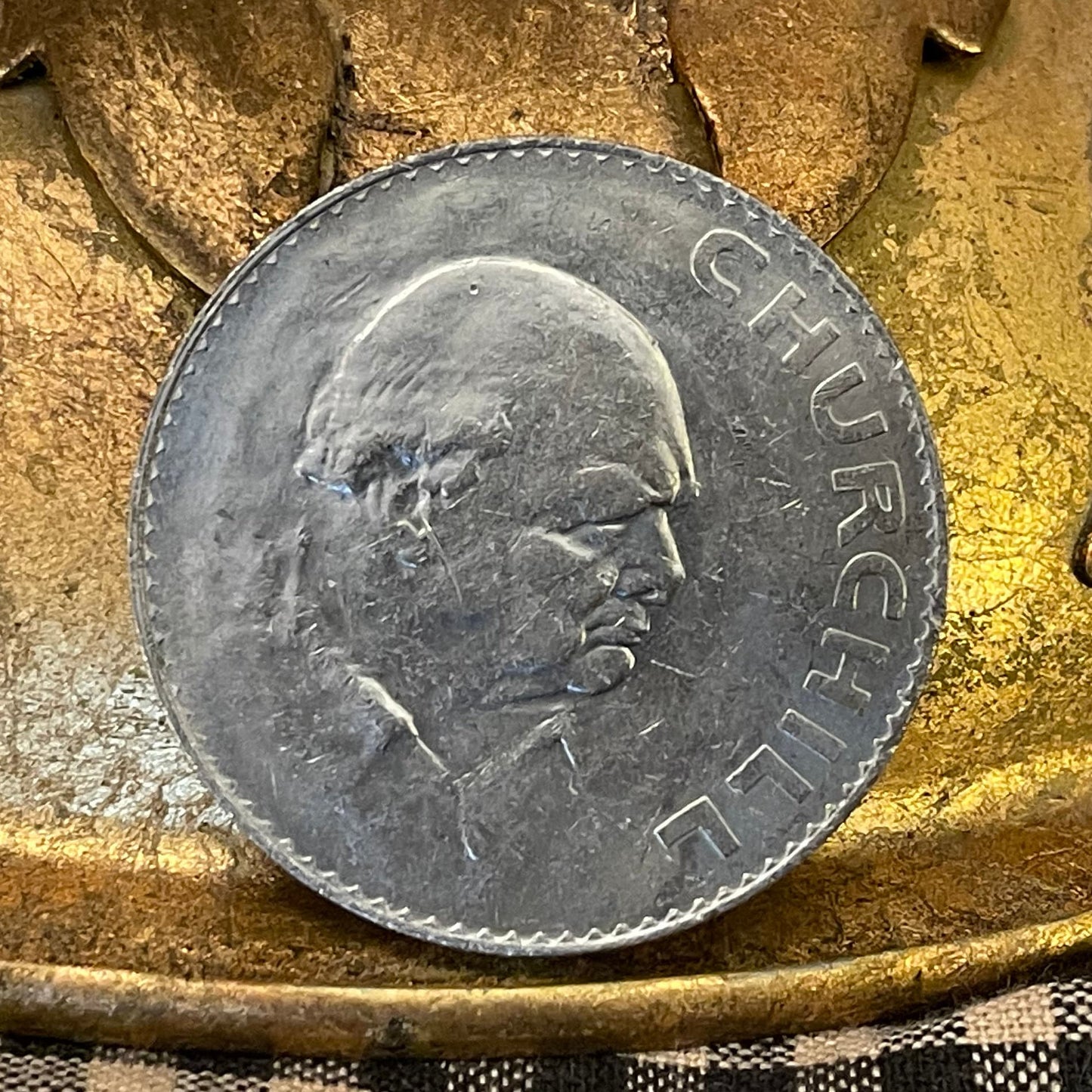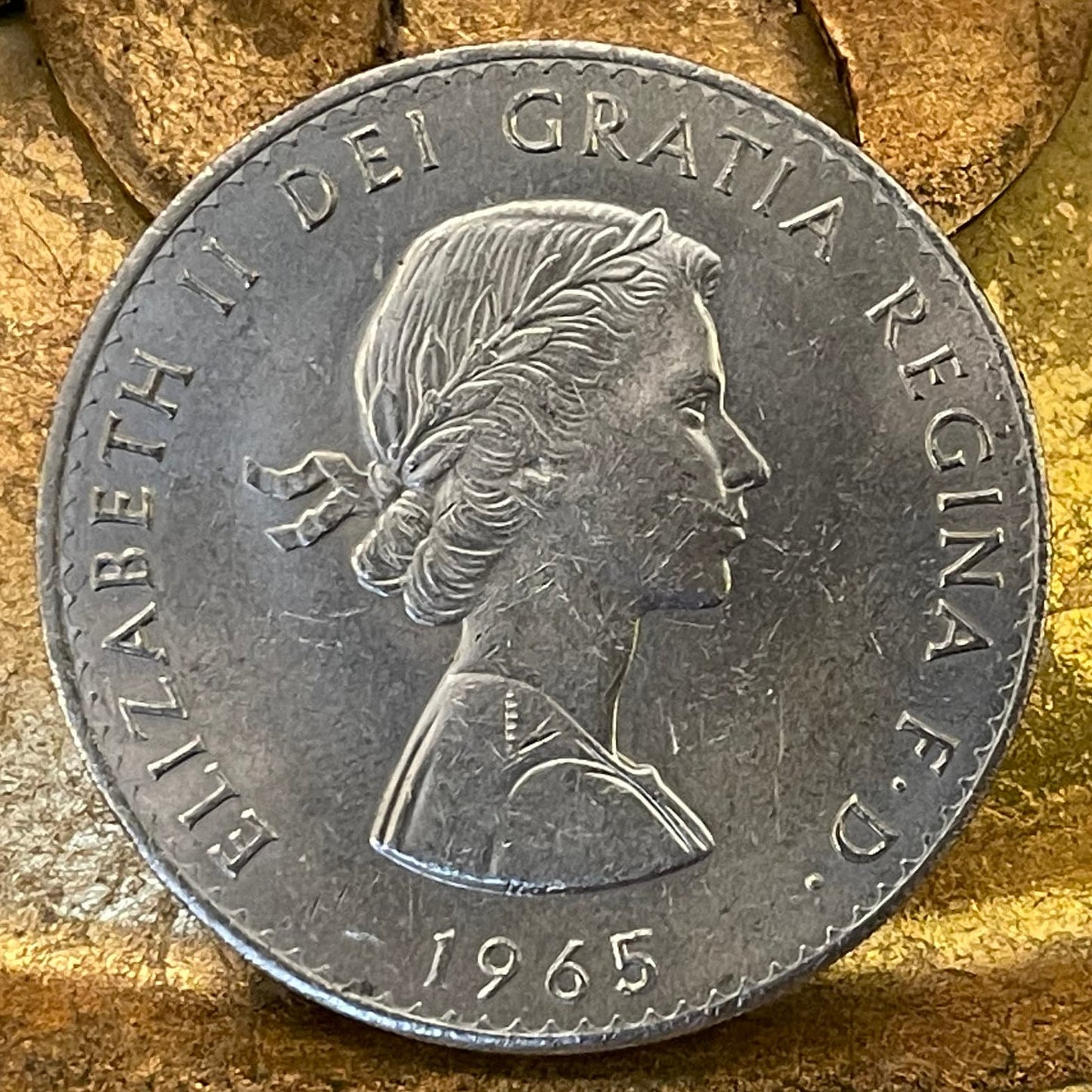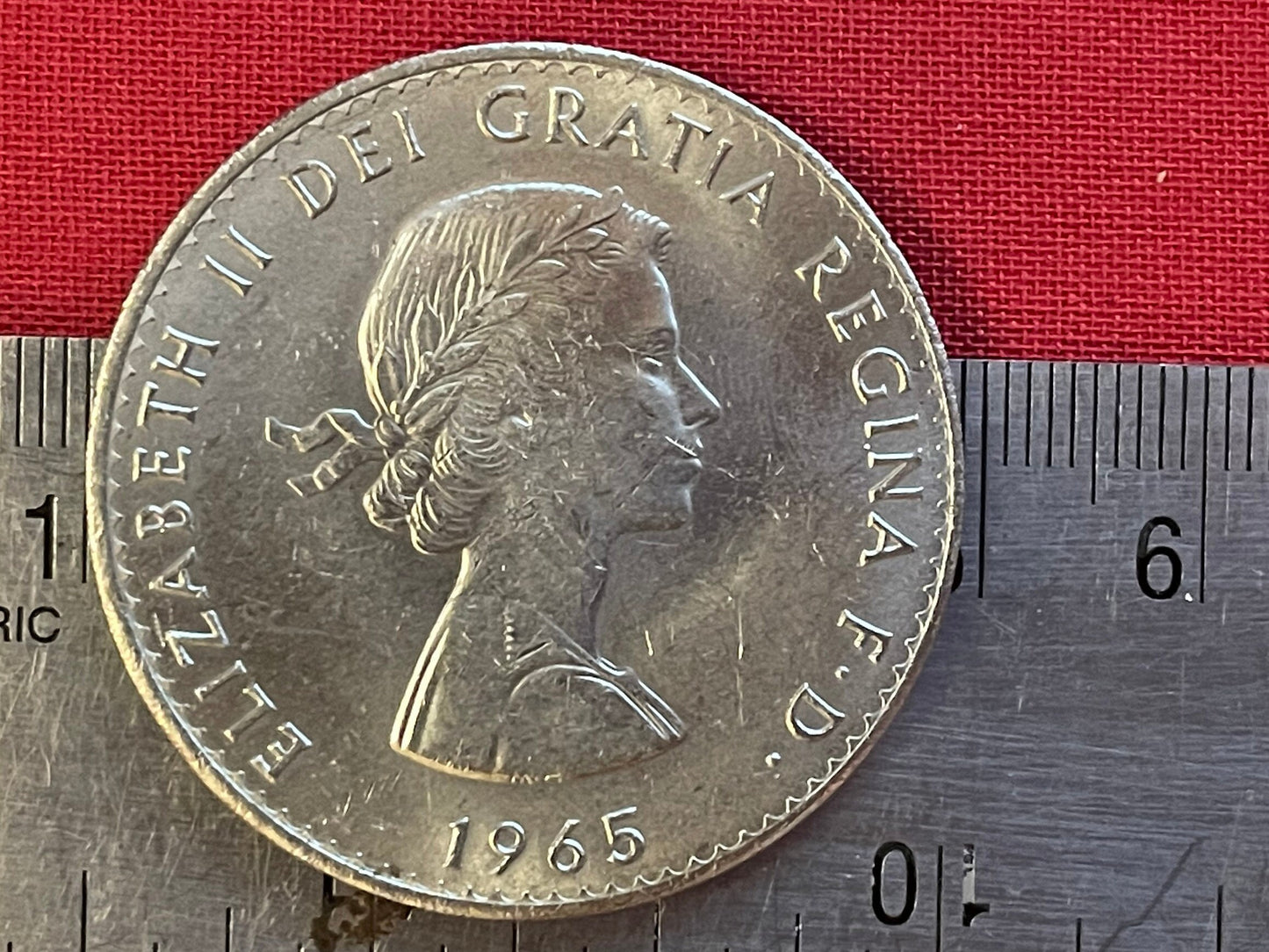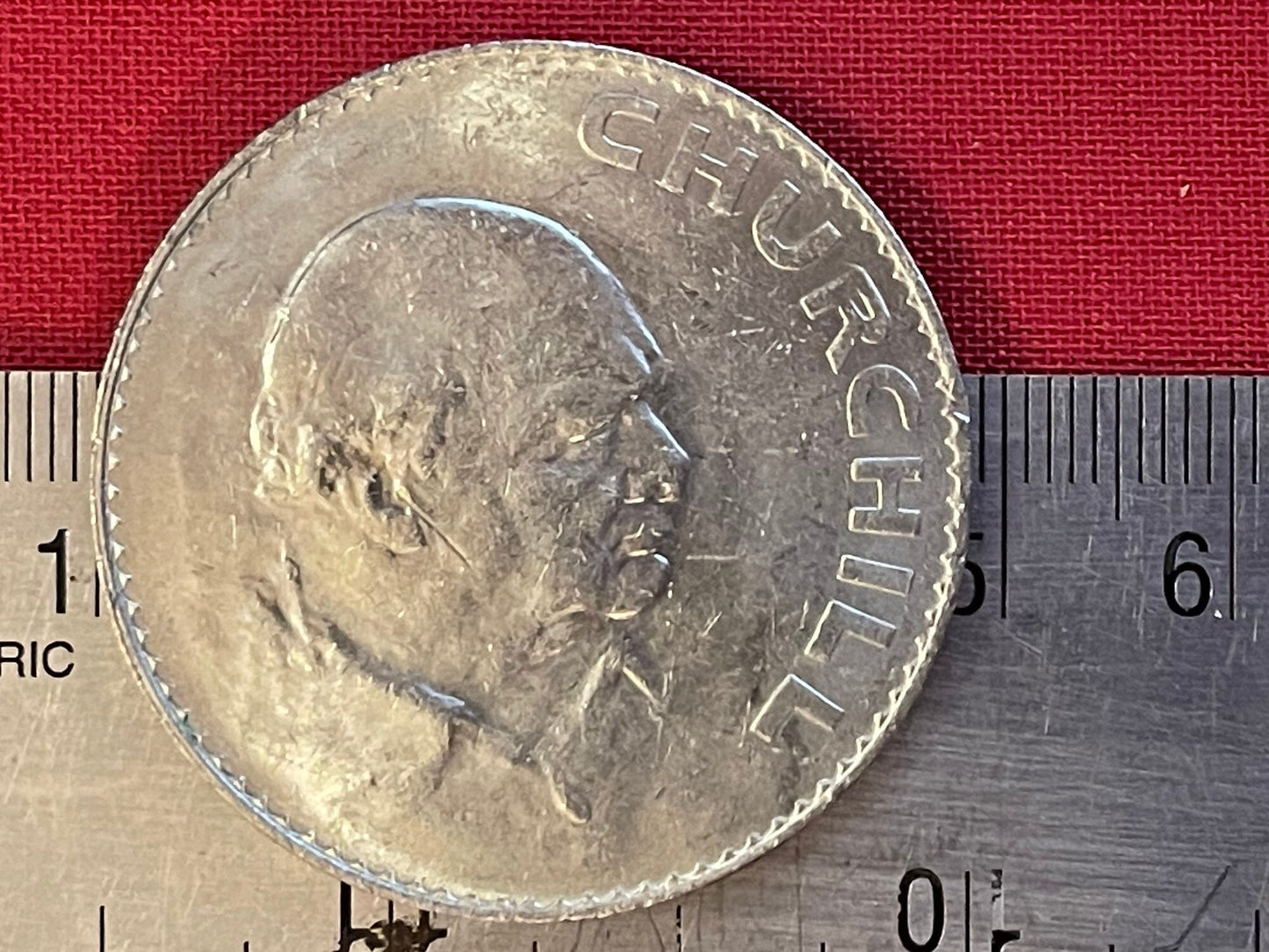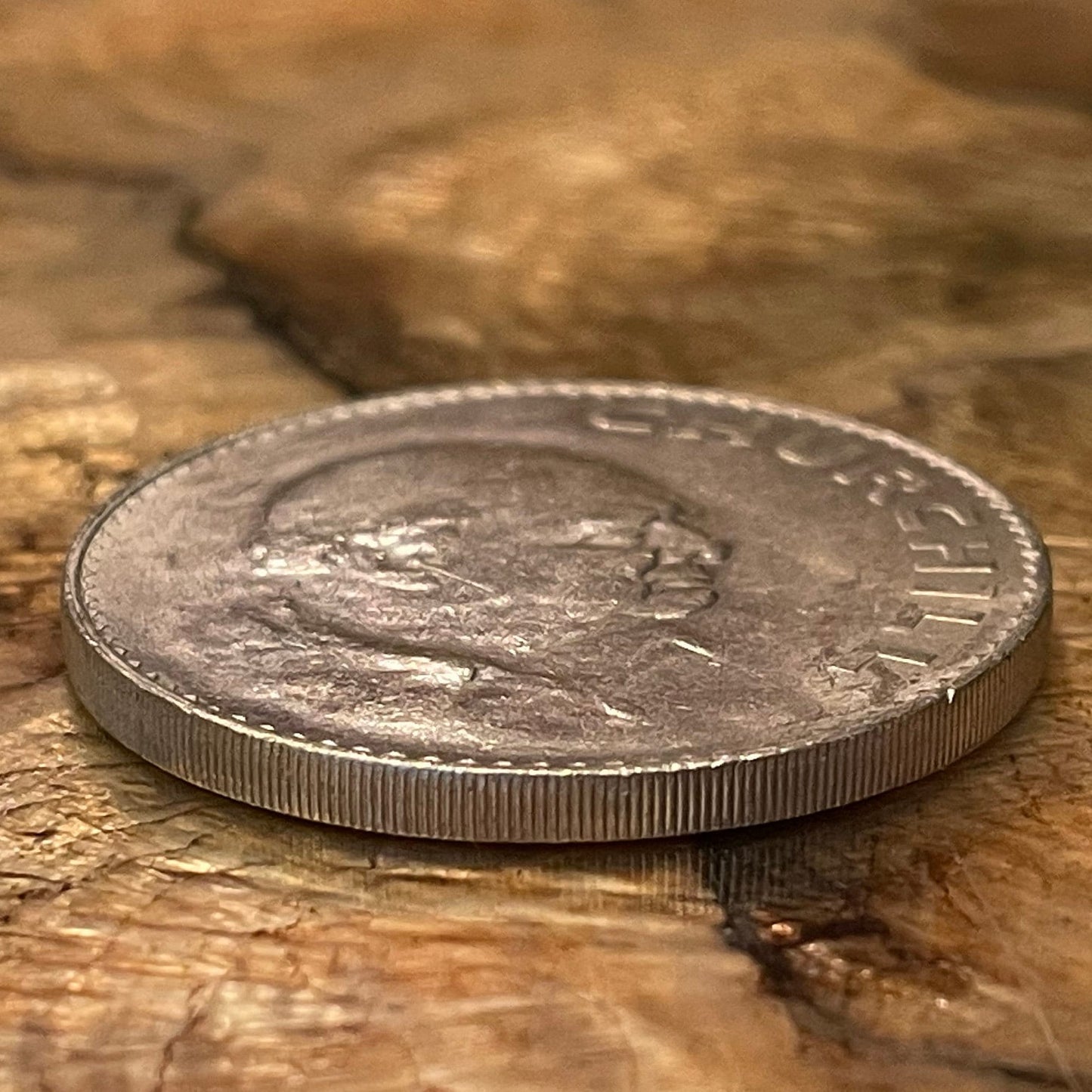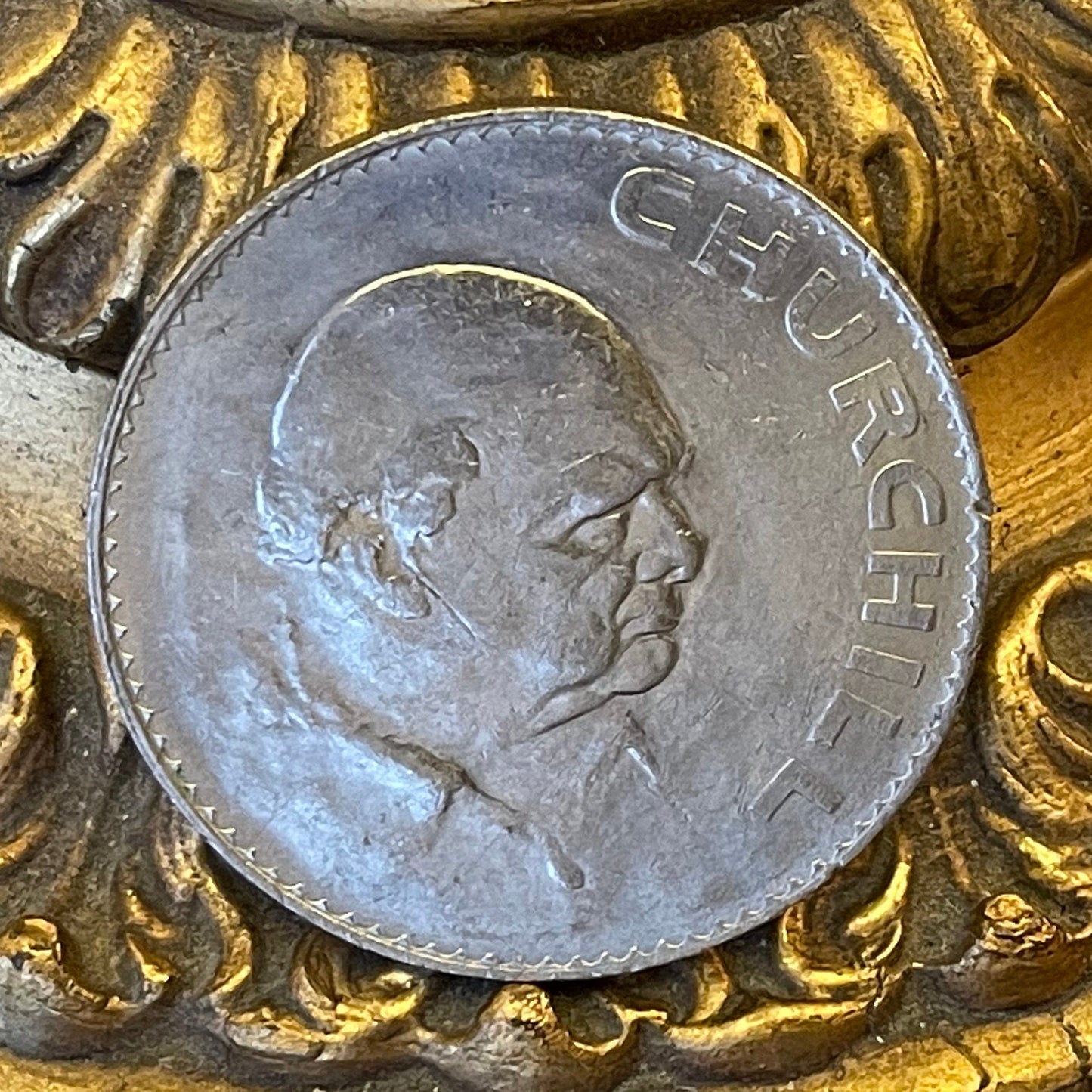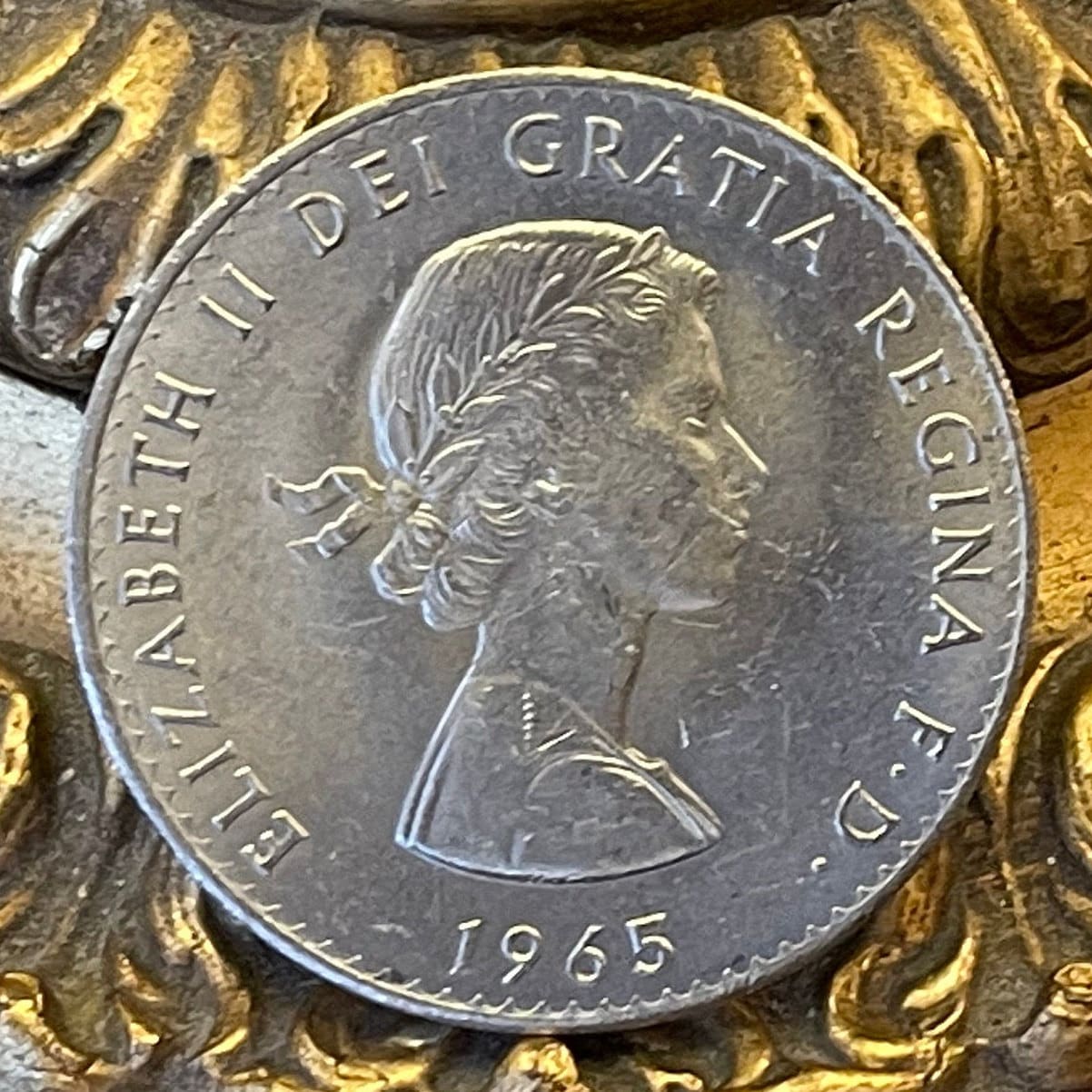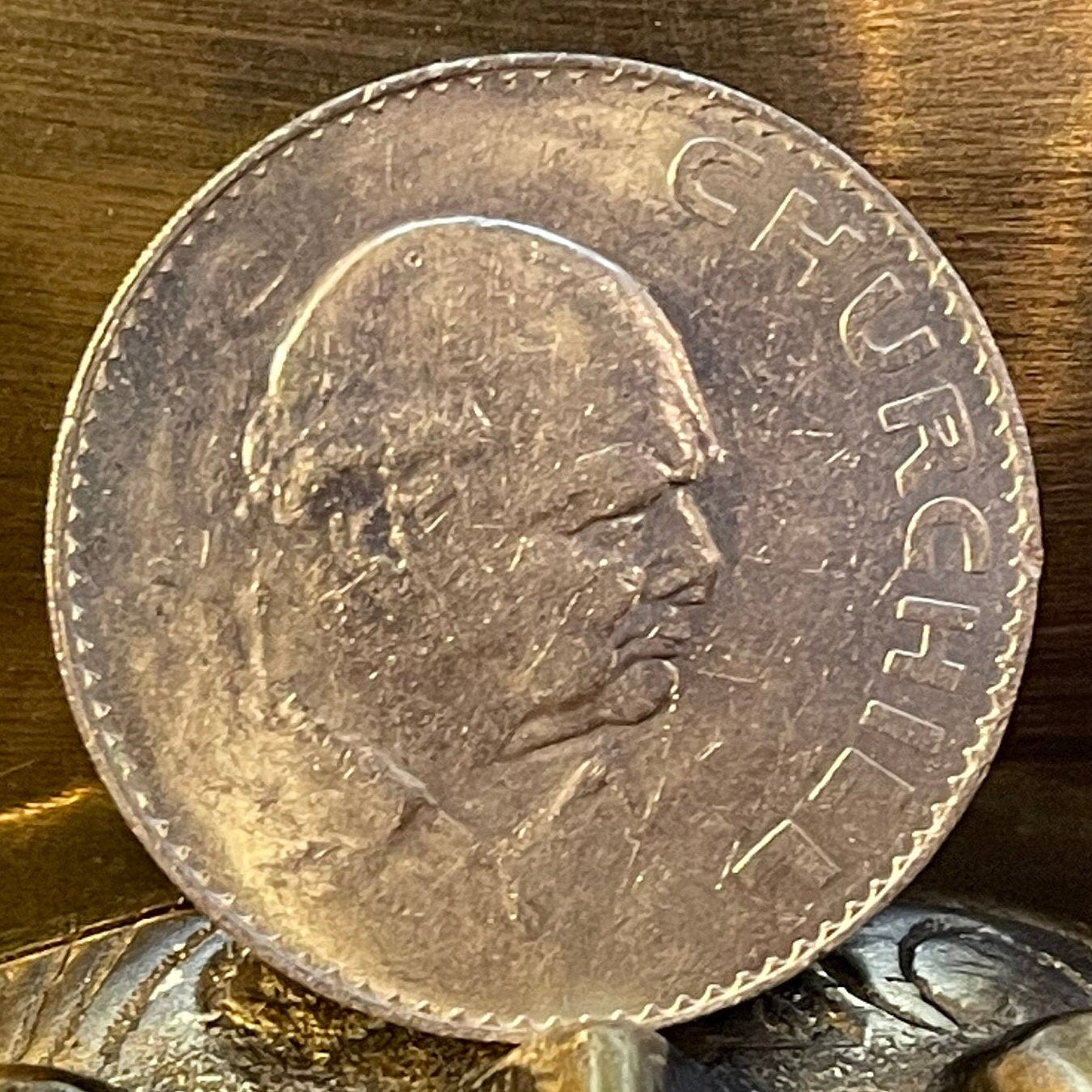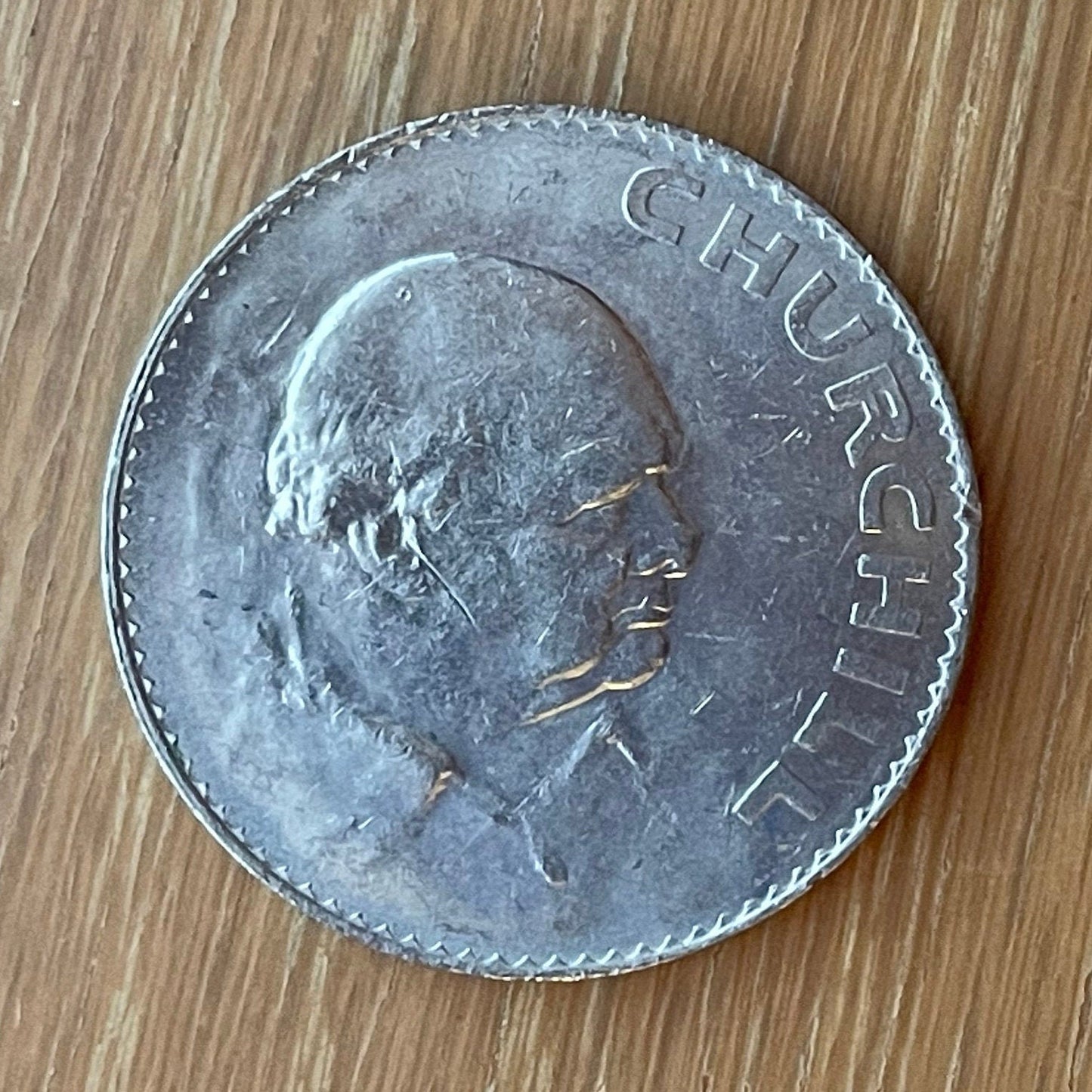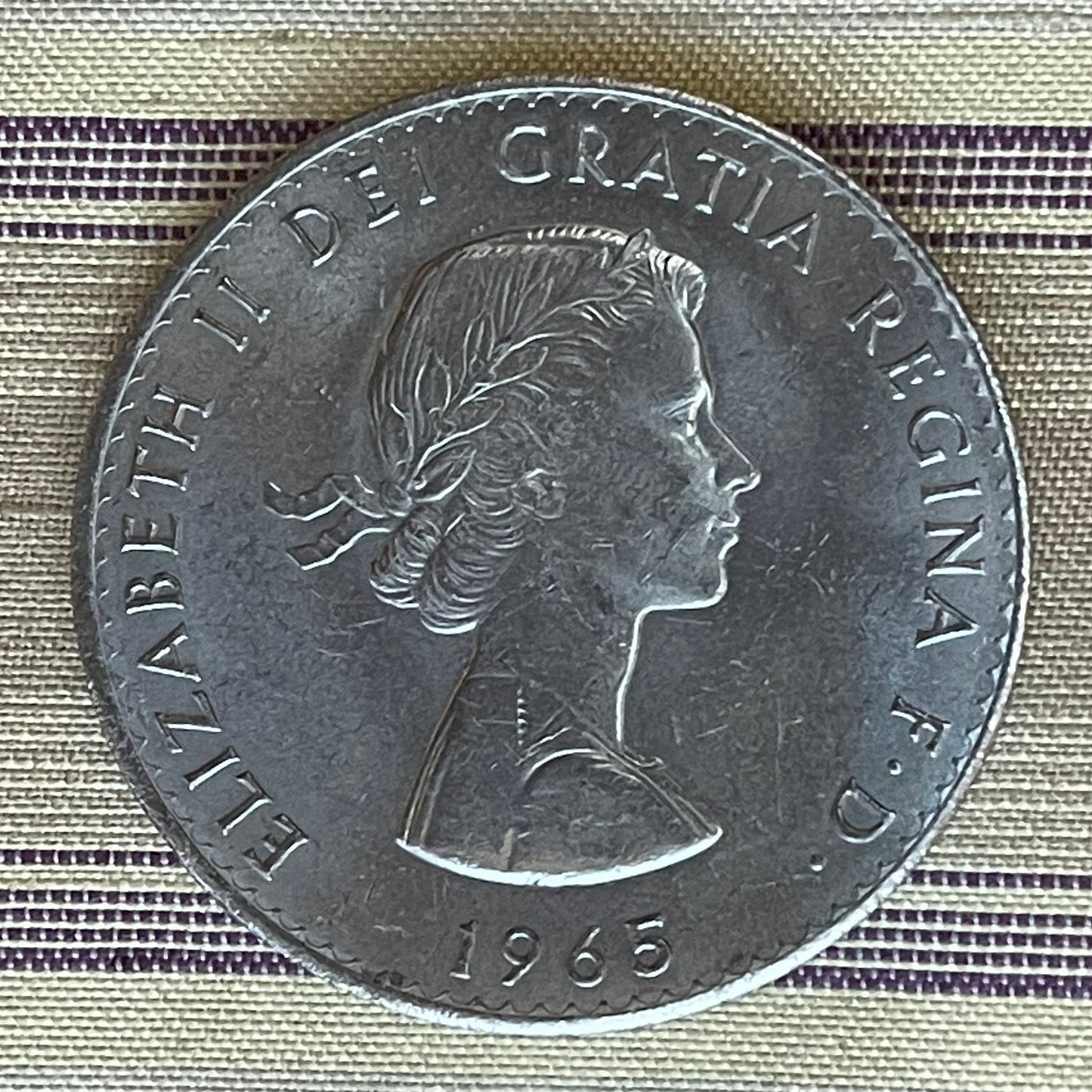elemintalshop
Winston Churchill 1 Crown Authentic Coin Money for Jewelry and Craft Making (Death of Winston Churchill) (1965)
Winston Churchill 1 Crown Authentic Coin Money for Jewelry and Craft Making (Death of Winston Churchill) (1965)
Couldn't load pickup availability
Winston Churchill 1 Crown Authentic Coin Money for Jewelry and Craft Making
Commemorative issue
Death of Sir Winston Churchill, 1965
Reverse: A sombre-looking portrait of Sir Winston Churchill, in a siren suit facing right.
Obverse: Young laureate bust of HM Queen Elizabeth II right, legend around, date below.
Lettering: ELIZABETH II DEI GRATIA REGINA F·D· 1965
Translation: Elizabeth the Second by the Grace of God Queen Defender of the Faith (Elizabeth II Dei Gratia Regina Fidei Defensatrix)
Features
Issuer United Kingdom
Queen Elizabeth II (1952-date)
Type Circulating commemorative coin
Year 1965
Value 1 Crown = 5 Shillings (1/4)
Currency Pound sterling (1158-1970)
Composition Copper-nickel
Weight 28.28 g
Diameter 38.61 mm
Thickness 3 mm
Shape Round
Technique Milled
Orientation Medal alignment ↑↑
Number N# 6898
References KM# 910, Sp# 4144
Wikipedia:
Sir Winston Leonard Spencer Churchill, KG, OM, CH, TD, DL, FRS, RA (30 November 1874 – 24 January 1965) was a British statesman who served as Prime Minister of the United Kingdom from 1940 to 1945, during the Second World War, and again from 1951 to 1955. Although best known for his wartime leadership as Prime Minister, Churchill was also a Sandhurst-educated soldier, a Nobel Prize-winning writer and historian, a prolific painter, and one of the longest-serving politicians in British history. Apart from two years between 1922 and 1924, he was a Member of Parliament (MP) from 1900 to 1964 and represented a total of five constituencies. Ideologically an economic liberal and imperialist, he was for most of his career a member of the Conservative Party, which he led from 1940 to 1955, though he was also a member of the Liberal Party from 1904 to 1924.
Of mixed English and American parentage, Churchill was born in Oxfordshire to a wealthy, aristocratic family. He joined the British Army in 1895 and saw action in British India, the Anglo-Sudan War, and the Second Boer War, gaining fame as a war correspondent and writing books about his campaigns. Elected a Conservative MP in 1900, he defected to the Liberals in 1904. In H. H. Asquith's Liberal government, Churchill served as President of the Board of Trade and Home Secretary, championing prison reform and workers' social security. As First Lord of the Admiralty during the First World War, he oversaw the Gallipoli Campaign but, after it proved a disaster, he was demoted to Chancellor of the Duchy of Lancaster. He resigned in November 1915 and joined the Royal Scots Fusiliers on the Western Front for six months. In 1917, he returned to government under David Lloyd George and served successively as Minister of Munitions, Secretary of State for War, Secretary of State for Air, and Secretary of State for the Colonies, overseeing the Anglo-Irish Treaty and British foreign policy in the Middle East. After two years out of Parliament, he served as Chancellor of the Exchequer in Stanley Baldwin's Conservative government, returning the pound sterling in 1925 to the gold standard at its pre-war parity, a move widely seen as creating deflationary pressure and depressing the UK economy.
Out of government during his so-called "wilderness years" in the 1930s, Churchill took the lead in calling for British rearmament to counter the growing threat of militarism in Nazi Germany. At the outbreak of the Second World War he was re-appointed First Lord of the Admiralty. In May 1940, he became Prime Minister, replacing Neville Chamberlain. Churchill oversaw British involvement in the Allied war effort against the Axis powers, resulting in victory in 1945. After the Conservatives' defeat in the 1945 general election, he became Leader of the Opposition. Amid the developing Cold War with the Soviet Union, he publicly warned of an "iron curtain" of Soviet influence in Europe and promoted European unity. He lost the 1950 election, but was returned to office the following year in the 1951 election. His second term was preoccupied with foreign affairs, especially Anglo-American relations and the preservation of the British Empire. Domestically, his government emphasized house-building and developed a nuclear weapon. In declining health, Churchill resigned as Prime Minister in 1955, although he remained an MP until 1964. Upon his death in 1965, he received a state funeral.
Widely considered one of the 20th century's most significant figures, Churchill remains popular in the UK and Western world, where he is seen as a victorious wartime leader who played an important role in defending Europe's liberal democracy against the spread of fascism. He is also praised as a social reformer. However, he has been criticized for some wartime events – notably the 1945 bombing of Dresden – and also for his imperialist views, including comments on race.
Share
